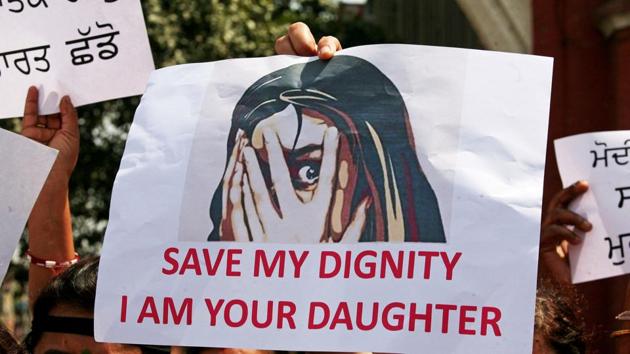Why violence does not move us any more
Its normalisation is inducing society to accept cases such as rape as routine and mundane. Today, one cannot visualise violence without the accompaniment of video clip, a selfie of congratulation for a task well done
Violence is a drama that demands a response. Through protests, consternation and outrage or even a dream of reconciliation or redemption, violence demands a crying call for justice. Yet sadly, the response to violence has changed over time. Time is fundamental here but perceived in two different ways. The first process is one of a return to normalcy. The disrupted world returns to the old stability or achieves a new equilibrium. One witnesses it during the aftermath of riots, where victims and survivors return home, renew relations with neighbours, who were recently antagonists, and resume an everydayness of life. Normalcy or a return to normal is an everyday process chronicled in the aftermath of most crises. In a ritual of return to normalcy, crisis becomes ritualised as a rite of passage, where one moves from the original equilibrium, to crises, to a new equilibrium. Such a process is tripartite and marks the structure of most sequences in the aftermath of violence.

The aftermath of violence has, however, mutated. The old rituals of normalcy look antique as political and social processes deviate to become a forced artificial process of normalisation, where a new equilibrium is coercively routinised. Instead of the old rite of passage, seeking a renewal from disruption, what we have is a series of add-ons, a range of incremental layers, where violence acquires a new sense of routine.
The power and creativity of anthropology lies in recreating an ethnography around normalisation. The process can be seen as adding a set of additional layers of legitimation where violence instead of being critiqued becomes almost congratulatory. One saw it after the Afrazul killing, when mobs in Jaipur lauded the murderer, as a reformer, even a redeemer. The perpetrators of Kathua were defended by lawyers seeking to literally bar the filing of charges. The law becomes selective and partisan and justice now belongs to power. It is almost suggested that margins and minorities who are refractory to the new civics of development should be objectified.
Instead of erasure, what we find is a rereading of memory, where the act of violence is replayed endlessly. One saw it in 7/11, one witnessed this redundancy of replay and legitimation in the Gujarat riots. Today, one cannot visualise violence without the accompaniment of a video clip, a selfie of congratulation for a task well done. The redundancy of consuming it as a replay, as a symbolic act creates a framework of legitimation. A decade ago, violence against minors or lynching of minorities,which today has become a part of everydayness,would not have been greeted with such calculated obviousness. The normalisation of violence induces in society a new acceptance of a mundanity. Raping minors is often seen as a routine demographic phenomenon which men in power indulge in with impunity. The victims get so objectified that the roster of the local politicians almost seems indifferent to whether the woman is aged six, 16 or 60. This, in fact, is one of the new changes in attitude that Kathua expresses. The normalisation of violence emphasises the continuous reign of the powerful where terror becomes both everyday and endemic. In the Ram Navami riots, in Bihar and Kolkata, one senses the old-fashioned view of violence is passe. It is no longer a pathology but a necessary prelude, an instrumental tactic to crank up the animosities that thrive during the electoral process.
The normalisation of violence is one of the rituals invented and consolidated in recent times. Violence is a physical act of brutalisation which is almost redeemed symbolically where pathology is routinised and rather than being ostracised is socially celebrated. In fact, in the new normalisation process, protecting the perpetrator rather than redeeming the victim is the new political priority. One sees it in the aftermath of the rape and sexual abuse of minors frequently where the Hobbesian world of violence routinises itself with greater depth. Rape becomes a ritual of dominance. The inanity of the official response adds to it. It is almost as if governmentality is a lip service, an absent- minded recognition of violence and its normalcy.
The normalisation of violence dismissed the old-fashioned dramas of ethics and repair and empties out the moral space of society into empty instrumentalism. Not justice but sanitisation is the new goal of the normalisation process. Normalisation routinises violence and evil through making it banal. Sociologically, normalisation marks the end of a crisis of conscience which was part of the old normalcy to becoming a challenge to more crises management. It moves from a moral to an amoral space and from values to sheer instrumentalism.
Sociologists of violence are noticing that the new innovations of evil come not on a grand scale with an epic quality both through middle range processes where standard rituals acquire an ironic twist. Normalisation in that sense is a part of this new middle range drama of evil which needs to be chronicled in greater detail.
Shiv Visvanathan is professor, Jindal Global Law School and director, Centre for Study of Knowledge Systems, OP Jindal Global University
The views expressed are personal



